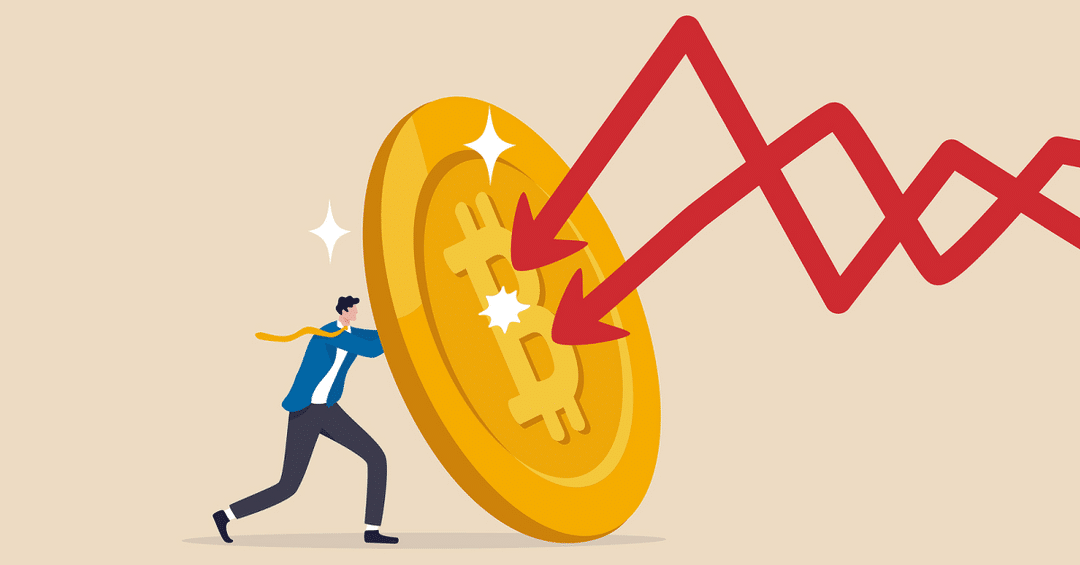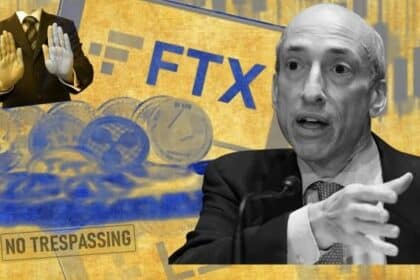Bitcoin, often touted as a hedge against inflation and traditional financial market downturns, is increasingly under scrutiny. With global economies facing uncertainty, questions are being raised about Bitcoin’s role as a safe haven during economic downturns. Experts are divided on whether the cryptocurrency is losing its edge as a reliable Bitcoin hedge during periods of market instability.
Bitcoin’s Promise in Economic Uncertainty
Bitcoin has long been championed as an alternative investment, especially during times of economic distress. The idea is simple: when traditional markets falter, Bitcoin, as a decentralized digital asset, is supposed to retain or even increase in value. This notion has fueled its popularity as a bitcoin hedge against inflation and economic debacles.
However, recent discussions among financial experts have highlighted a growing concern—whether Bitcoin is losing its place as a hedge against inflation during these tumultuous times. Rob Nelson, anchor of Roundtable, recently engaged in a conversation with David Gokhshtein, Founder and Executive Chairman of Gokhshtein Media, and Jon Najarian, Co-Founder of Market Rebellion, to explore this very issue.
Bitcoin’s Stability Questioned Amidst Economic Fluctuations
The conversation started with Nelson acknowledging Bitcoin’s initial promise as an alternative to traditional investments, particularly during economic uncertainty. He raised an important question: Can Bitcoin withstand the pressures of a full-blown recession? The concern lies in its extreme volatility, which has been evident in the market for the past few years, challenging its role as a hedge against inflation.

David Gokhshtein, a prominent voice in the crypto space, offered his insights. He emphasized the importance of Bitcoin in every financial portfolio, arguing that it remains a vital asset despite its fluctuations. “Bitcoin should be a part of every American’s financial portfolio,” Gokhshtein asserted. He acknowledged the challenges posed by traditional financial institutions but expressed optimism that companies like BlackRock and Fidelity could play a crucial role in promoting Bitcoin to mainstream consumers. This, he believes, could help Bitcoin maintain its relevance as a hedge against inflation.
Yet, Gokhshtein also voiced frustration with the Federal Reserve’s recent actions, particularly their reluctance to cut interest rates. He argued that the Fed’s decisions had exacerbated market dips, putting both investors and consumers under financial strain. “A more aggressive rate cut could have instilled confidence and alleviated some of the financial strain felt across the globe,” Gokhshtein stated, implying that this could have strengthened Bitcoin’s position as a hedge against inflation and economic troubles.
The Role of Bitcoin ETFs in Market Stability
Another critical aspect discussed was the introduction of Bitcoin Exchange-Traded Funds (ETFs), especially those backed by major financial institutions. ETFs are often seen as a way to make Bitcoin more accessible to everyday investors, potentially broadening its user base.
Nelson highlighted a common sentiment among crypto enthusiasts: the fear that the involvement of large financial institutions through Bitcoin ETFs could dilute the cryptocurrency’s original purpose. This concern is rooted in the belief that Bitcoin was designed to be an alternative to traditional financial systems, not a product of them. However, he questioned whether broader access to Bitcoin through ETFs might actually benefit the market by providing a more stable investment vehicle, thus reinforcing its role as a bitcoin hedge.

Jon Najarian, co-founder of Market Rebellion, countered the argument that ETFs might harm Bitcoin. He pointed out that the absence of an approved Bitcoin ETF in the past contributed to market inefficiencies and problems like those seen with the collapse of FTX, a major cryptocurrency exchange. Najarian argued that the approval of Bitcoin ETFs could offer a more stable and transparent alternative for investors, potentially preventing the kind of market turmoil that has plagued the crypto industry in recent years and supporting Bitcoin’s position as a bitcoin hedge.
Bitcoin’s Future as a Bitcoin Hedge Remains Uncertain
As the discussion highlighted, there is no clear consensus on whether Bitcoin is losing its place as a bitcoin hedge during economic downturns. While some experts remain optimistic about its role in the global financial system, others are cautious, pointing to its volatility and the potential impact of traditional financial institutions entering the space through ETFs.
What remains clear is that Bitcoin continues to be a subject of intense debate. As economic conditions evolve, so too will the conversations around Bitcoin’s effectiveness as a bitcoin hedge. In the end, Bitcoin’s place in the financial world may not be as straightforward as it once seemed. Its role as a bitcoin hedge during economic downturns is being tested, and only time will tell if it can live up to its promise or if it will need to evolve to maintain its relevance in an ever-changing market. Keep following TheBITJournal for latest updates on Crypto market.





























